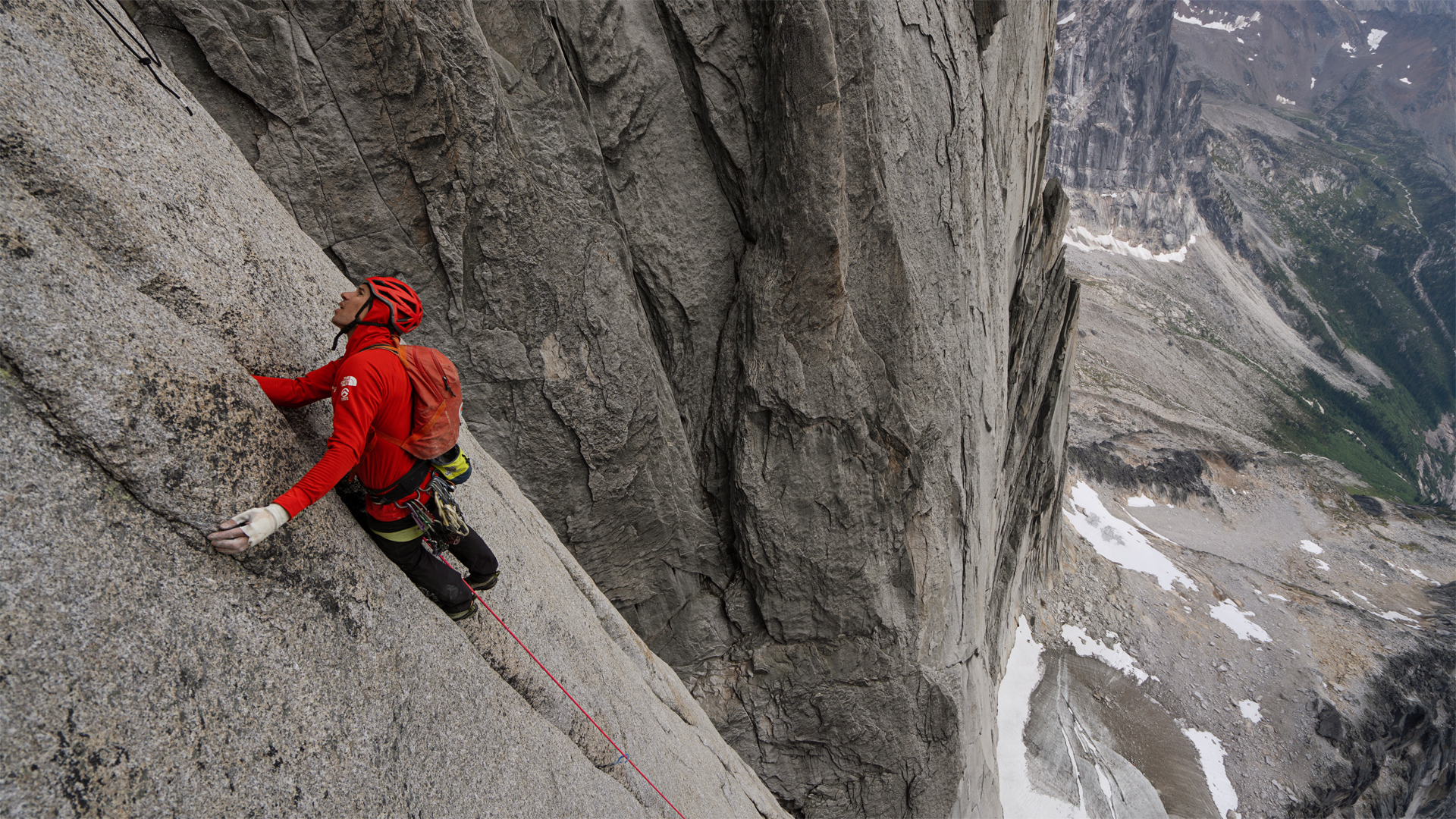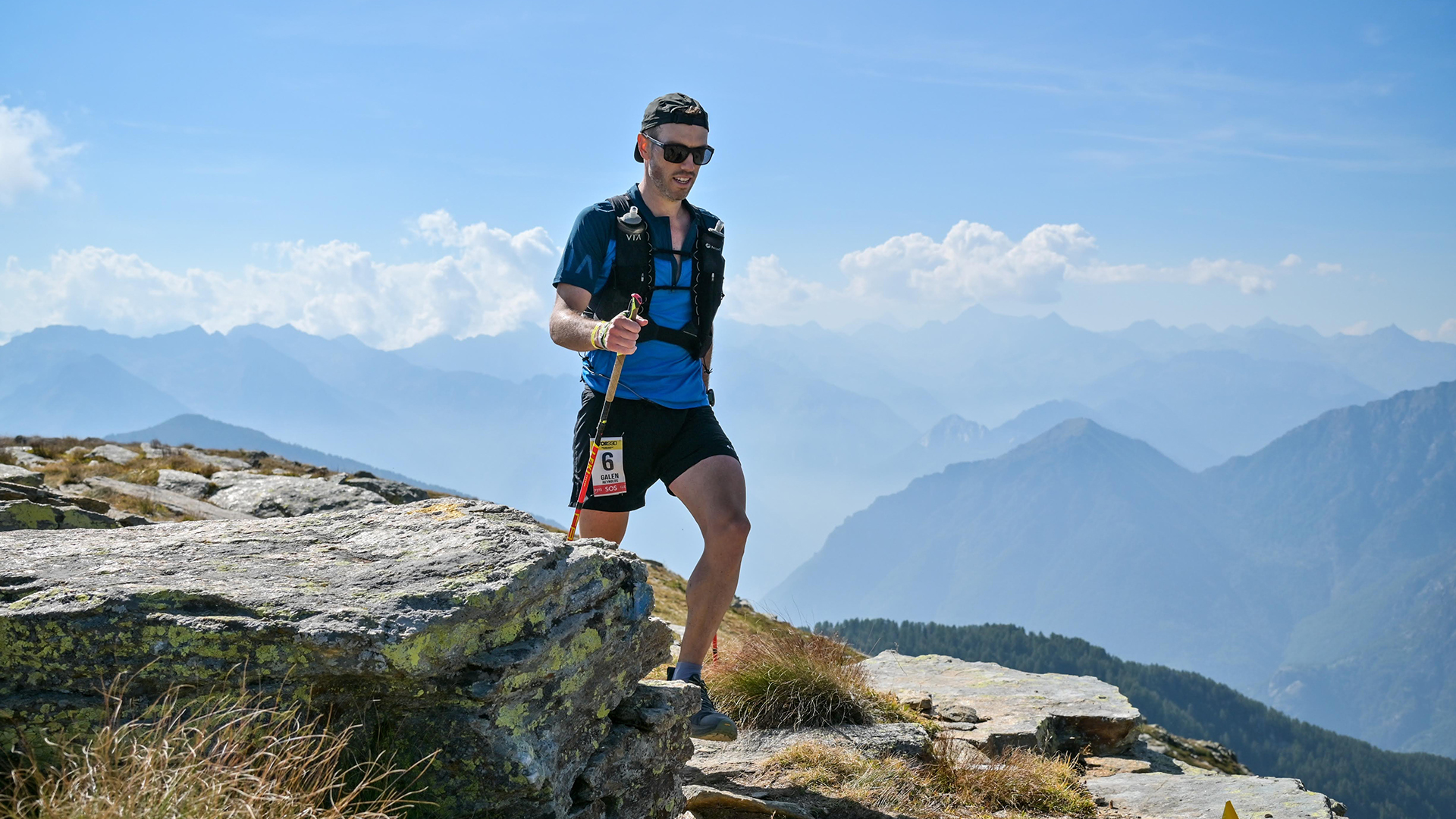
Galen Reynolds has run some of the most iconic ultras in the world, including the UTMB and Tor des Géants. He broke Marcus Scotney’s Dragon’s Back course record in 2019 and won the Montane Cheviot Goat.
Originally from Canada, with a background in ice hockey, he puts his success down to a mixture of dedication and an upbeat attitude – combined with a sensible and strategic approach to fueling for long mountain ultras. Advnture caught up with him amid a hectic schedule to get the low-down on just what fuels his epic runs.
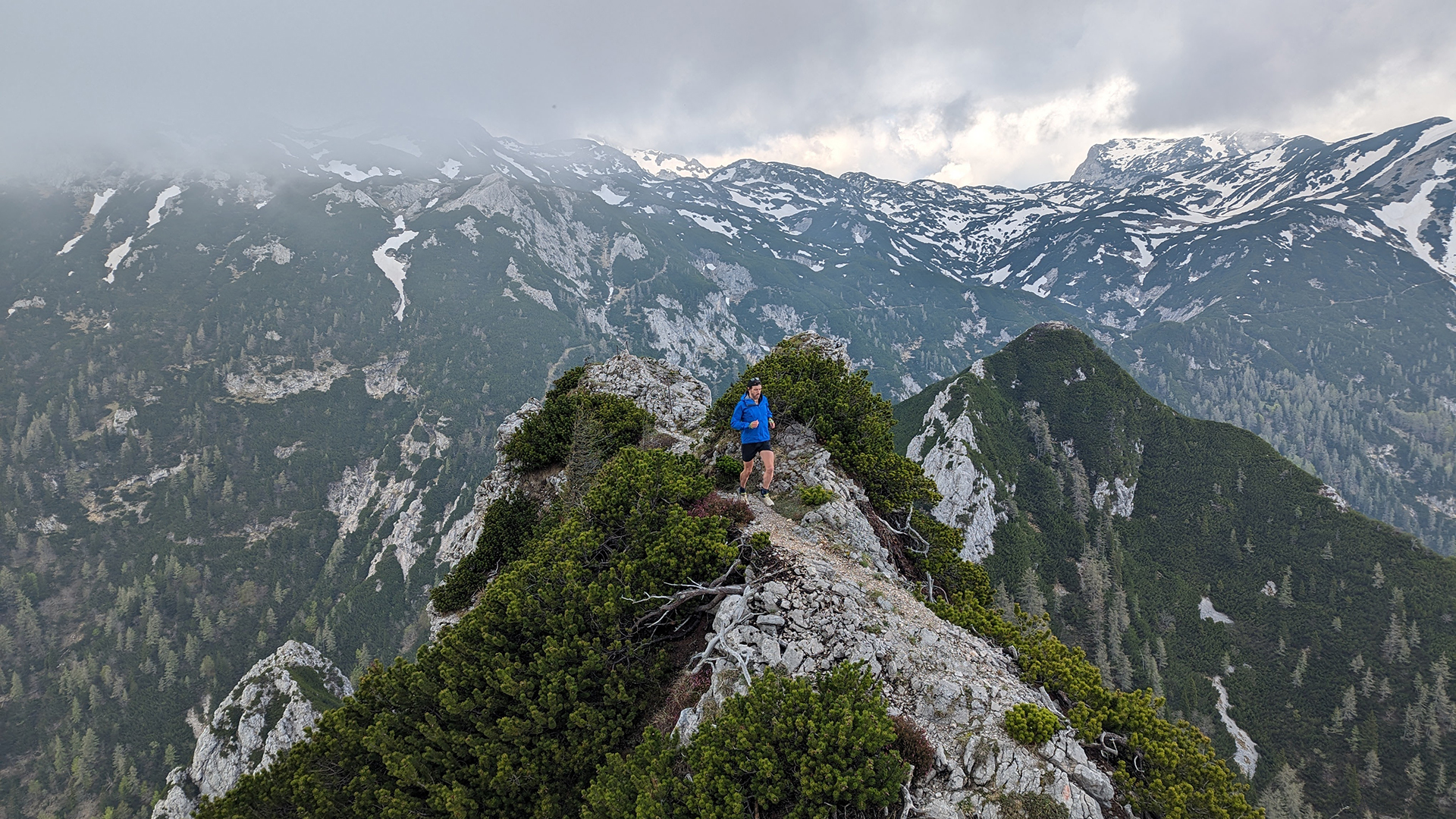
What does your nutrition strategy look like in the week leading up to an ultra?
With the race on Saturday, I will usually cut out vegetables on Tuesday and gradually make the meals basic and plain – keeping the protein and carbs coming in. I’m not increasing either early in the week as I will also be tapering, pushing the caloric output down.
I’ll be quite careful with what I eat, and I’ll only eat things that agree with my stomach – no gluten or dairy during race week.
How has that routine changed over the years?
My strategy has changed significantly since I first started. [Then] it included fasting for 36 hours to try to lose weight and eating a lot of carbs for dinner and breakfast before the race. My pre-dinner and breakfast aren’t large, but the week is steady, with sports drinks coming in later in the week to stockpile carbs.
What’s your go-to meal the night before a race and your breakfast on race day? Are there any foods you avoid in order to prevent issues during the race?
Advnture Newsletter
All the latest inspiration, tips and guides to help you plan your next Advnture!
Hmmm. My ‘go-to’ pre-race meals start the day before a race with breakfast and they’re all similar in their boringness! One great aspect having this routine is I don’t have to think about it during race week, when there’s usually lots of other logistics to worry about.
The day before the race it’s:
· Breakfast: oats, blueberries and maple syrup.
· Lunch: two egg wraps with salsa and plain tortilla chips.
· Dinner: white rice and chicken breast
I’ll be sipping on sugary sports drink throughout the day and will snack on plain tortilla chips but they’re so plain I don’t snack much!
On race day it’s:
· Breakfast of oats and maple syrup
· Sipping on sugary sports drink throughout the morning
I avoid anything with very high amounts of fiber and all vegetables as this can lead to bloating and needing to use the bathroom during the race.
What kind of snacks do you prefer to carry with you during an ultra marathon? Do you favor whole foods, energy gels, or a mix of both?
After 10 years in the sport, I’ve tried hundreds of bars and haven’t come up with one that works. I put this down to always being at some level of dehydration and then eating solid food, which feels like trying to eat a cup full of cinnamon.
During shorter events – up to 14 hours – I rely solely on sugary sports drinks and gels. I’ve been using the product range at Precision Fuel & Hydration – they make a great carb drink where each scoop is 15g of carbs.
I’m making one of my 500ml flasks a 90g carb drink, good for one hour of hard racing. The 90g big gel that Precision makes works really well, and through training, I’m able to eat the whole thing in one go and not have to worry about nutrition for the next hour.
The longer events, up to several days, are a work in progress. I come in with a nutrition plan for every race, and the only thing I know is that the plan will not survive without several reworks.
I incorporate as much hard food as possible. Hard food is only hard in comparison to gels. The hard food needs to be soft and mushy – like feeding a baby. A cup of noodles, rice with soup poured over it and polenta with anything ‘liquidy’ as polenta can be deceivingly hard to eat on its own.
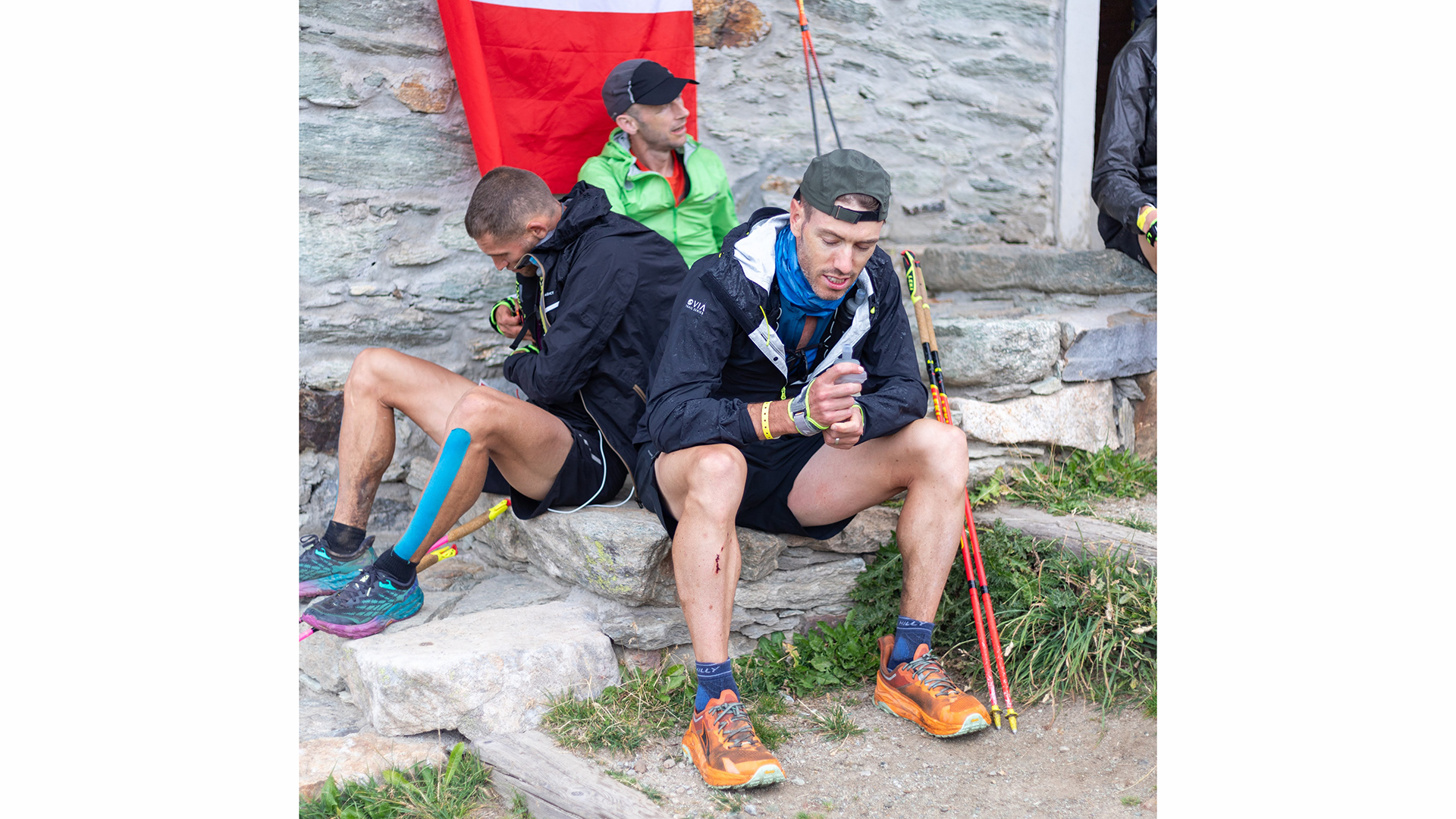
How do you balance hydration and electrolyte intake during long races? Do you have a favorite sports drink or electrolyte supplement?
I upgraded my hydration game when I went for a sweat test to determine my sodium loss per liter of sweat. Now I’m able to fine-tune my electrolytes instead of guessing how much I should take.
I like to take salt pills; I use Salt Stick because I want to know exactly how much sodium I’m taking instead of trying to estimate in a drink in case I don’t finish the drink, mix it wrong, or spill some.
During long events, particularly the 200-milers, I go more by feel – the feel of cramps. If I notice them coming on, I’ll take a huge amount of electrolytes – up to 1,500mg of sodium – think happy thoughts, and see what happens.*
Post-race or big training days, I enjoy the Precision Fuel and Hydration tabs. It helps recovery and is so much sodium that it sorts me for the rest of the day. It helps avoid lightheadedness and general feelings of awfulness.
What are your immediate post-race recovery meals like? After a gruelling run, how do you ensure you get enough protein, carbs, and other nutrients?
After finishing races, I will usually eat as much as I can, mostly clean good food, lots of carbs and protein-focused for a day or two before getting my life together and back to normal diet.
After long training runs, I focus a lot on eating quickly after the run and will supplement with protein bars if I’m not close to eating. I make sure to have lots of water and food in the car after a long run in the mountains when I’ll have an hour’s drive home.
I’m looking at getting in 40-60g of protein after those massive eight-hour training days in the mountains. I’ve also been experimenting with ketones after long training runs for the recovery benefits, I’m not completely sold on this yet though.
How does your nutrition change in the days following a race to promote muscle recovery and reduce soreness? Are there any superfoods or supplements you rely on?
In the days following a race, I’m focused on staying very hydrated and eating a lot of carbs and protein. In addition to the typical magnesium and omega supplements, I’ll be taking turmeric, ginger, black pepper and ashwagandha. And to really add jet fuel to the recovery process, I try my best for additional sleep.
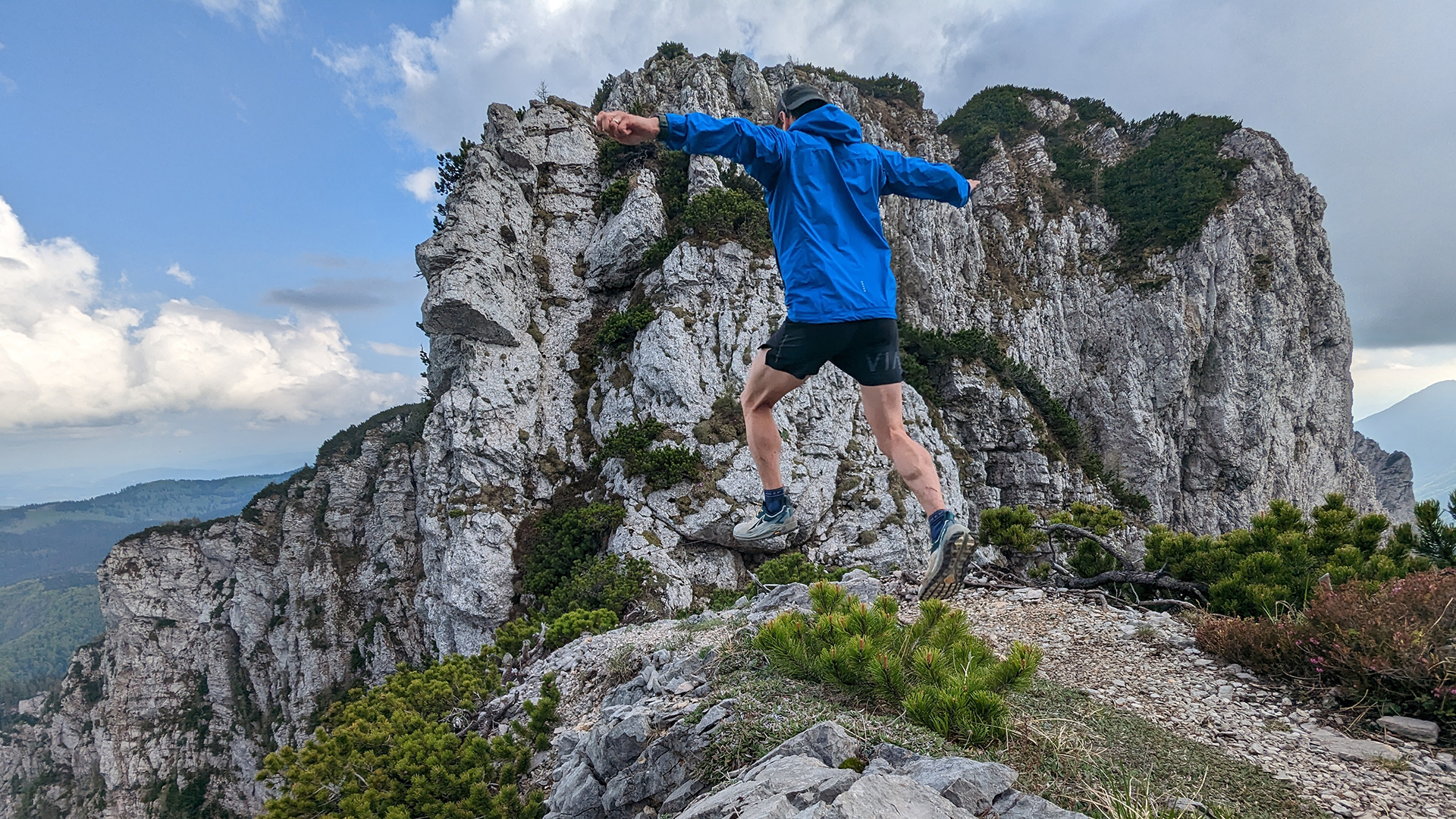
Do you follow any specific diet, such as plant-based, keto or paleo, for training and racing? How has it impacted your performance and recovery?
Before having kids, I was all over the diet fads. I tried keto, primal, paleo and plant-based. A strong devotee of each for a year or so. But by the time we had kid number two, I didn’t have the time and energy to have a separate diet!
We eat a large variety of foods now but don’t stick to any specific diet apart from generally healthy food. Lots of vegetables, protein and some carbs for dinner. If there was a diet I followed, now it’s a human ‘garberator’ (garbage disposal), as I’m usually in charge of eating what my kids don’t like!
What’s the most important piece of nutrition advice you would give to someone preparing for their first ultra?
Be a “triatarian”. Try, record, adjust. In the beginning, we have to start somewhere; listening to a professional trail runner’s nutrition can be a starting point but most likely won’t work for others. I believe nutrition is even more individualistic than training. I’ve tried a silly amount of nutrition strategies, even trying to stick with only full meals during multiday efforts, as I observed some of my mountain-hardened competitors do.
I write down what works in each situation and what doesn’t, rework the plan and try again. Try lots of different products and home-cooked experiments, and maybe you’ll be the lucky one with a stomach of steel who can eat a full roast while out running.
Galen Reynolds is a Montane athlete.
*The American Heart Association recommends a safe upper limit of 2,300mg of sodium per day, with the ideal upper limit being 1,500mg, so bear that mind if you’re not sweating much, and also in day-to-day life.
Rob Kemp is a Dorset-based trail runner and off-road cyclist. He's written on the subject of health and fitness for over 25 years across a range of publications and websites. A former contributor to Trail Running and Outdoor Fitness magazines, his work now regularly features in The Telegraph and Cycling Weekly magazine. These days he's easing off from marathon running and devoting more time to hiking in Wales and Scotland or falling off of his bike in scenic wilds of south-west England.

